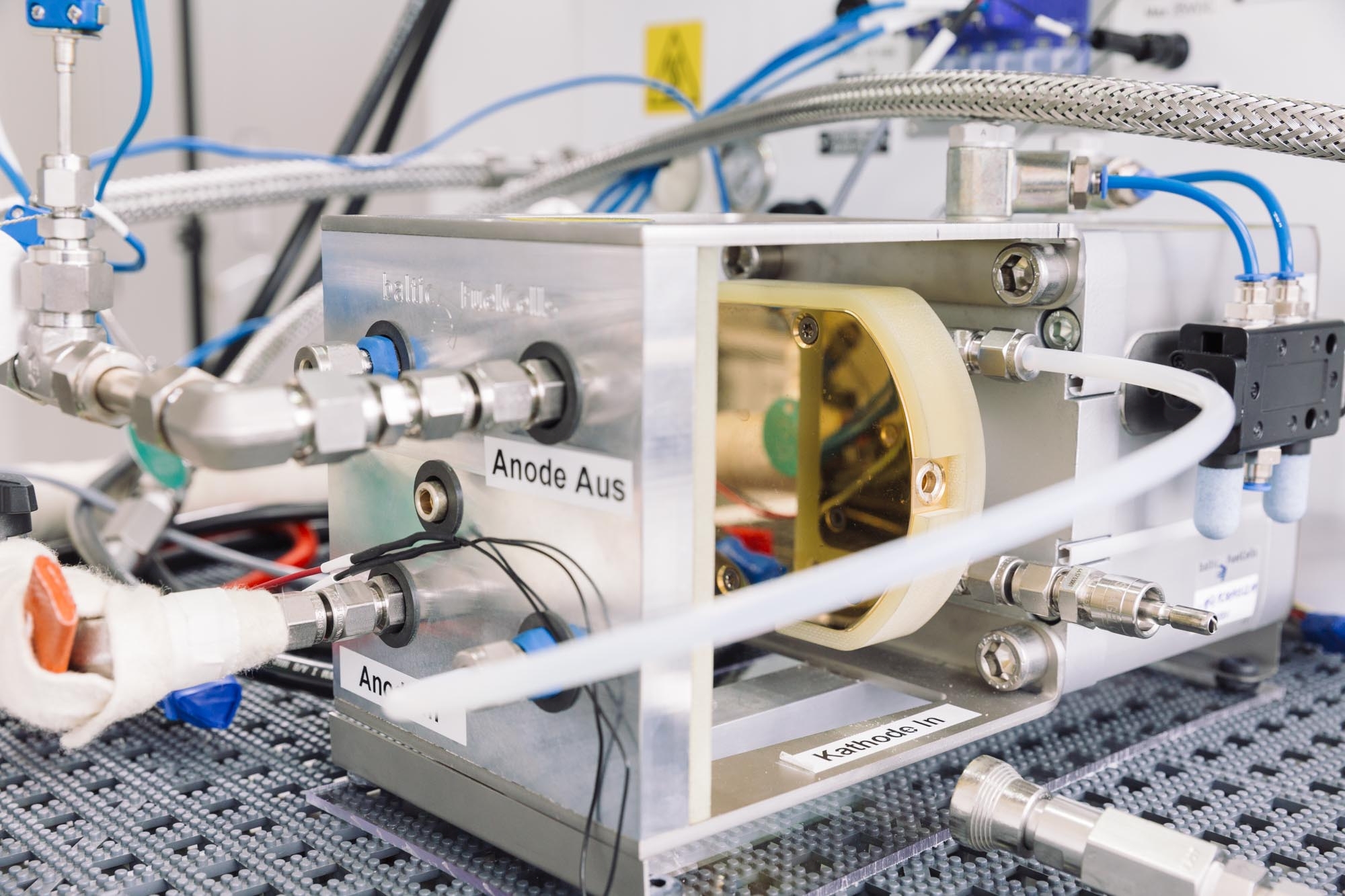Future international logistics for the import of green hydrogen
Together with Korean research partners, Anhalt University of Applied Sciences and the Fraunhofer Institute for Microstructure of Materials and Systems IMWS are investigating and researching the possibilities and requirements of a future import of green hydrogen.

The Logistics and Aviation Management program at Anhalt University of Applied Sciences and the Fraunhofer IMWS have successfully applied for a five-year project to establish a German-Korean research network and a research presence in Korea. The project "H2DeKo" started on July 1, 2021 and is funded by the German Federal Ministry of Education and Research (BMBF) in the amount of more than 750,000 euros.
Research for sustainable energy development
The planned joint project is to initiate cooperative, German-Korean research projects and educational networks on the topic of logistics of green hydrogen (H2). To this end, a joint research presence will be established in Korea, accompanied by annual workshops and intensive exchange of scientific personnel. After completion of the funding, the German partners will aim to establish a permanent presence in the Korean research landscape by integrating possible industrial financing.
To achieve CO2 neutrality of the economies in Germany and Korea, the production of H2 by means of electrolysis with regeneratively generated electricity is a necessary prerequisite. Existing and planned photovoltaic and wind power capacities in both Germany and Korea are not sufficient to meet all the needs of industry or private households. Substantial import volumes of H2 from countries where sufficient capacity of regeneratively generated electrical energy can be made available are mandatory for both countries.
Similar research needs in Korea and Germany
Therefore, both countries have a similar need for research on necessary preconditions and requirements for the entire logistic chain of green H2 from the producing country via the relevant transport routes to the destination country and the domestic distribution.
The goal of Anhalt University of Applied Sciences in this context: the initiation, organization and administrative support of the German-Korean scientific cooperation. The President of Anhalt University of Applied Sciences, Professor Jörg Bagdahn, says: "This funding commitment is a further building block in the expansion of our research activities in the field of sustainable energy research and follows on from our many years of successful cooperation with Korean partners. The master's program in logistics and aviation management has a research focus on hydrogen logistics, and this funded project complements Anhalt University's strategic research orientation."
To initiate cooperative research projects as well as projects on hydrogen logistics and to establish a research presence in Korea will be the goal of the Fraunhofer IMWS. The deputy director of the institute Dr.-Ing. Sylvia Schattauer emphasized: "Hydrogen has been recognized in Germany and internationally as a key element for the transformation of energy systems and a sustainable industry. By collaborating with excellent partners from a research-strong country like Korea, we want to leverage synergy potentials and provide German industry with improved access to these markets through the emerging networks."